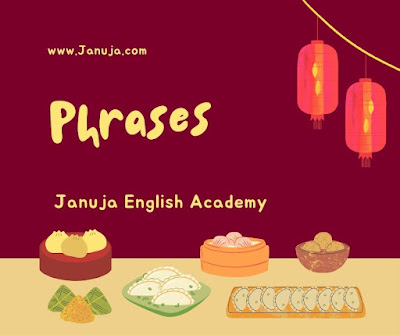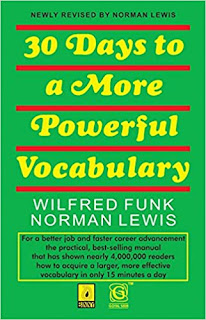We shall learn what a phrase is and how many types of phrase are there in English.
Phrase : A phrase is a group of words which doesn’t contain a finite verb, but does the work of a single part of speech.
Example: Reading novels improves your English.
In the above example, the highlighted words act as noun in the sentence. It contains two words which act as a unit. So, we call such words phrases.
Types of Phrases: There are at least nine important types of phrases in English. They are:
1. Noun Phrase: This phrase acts as a noun in the sentence, and it also contains other associates to modify it.
Examples:
Kavya bought a blue saree.
A tall woman came to help him.
2. Prepositional Phrase: It contains a preposition and an object of the preposition.
Examples:
The students are looking at the black-board.
Jyothi has slept on the sofa.
3. Adjective Phrase: It acts like an adjective in the sentence.
Examples:
The man with the white-hair is my father.
The chairman is the man of honour.
4. Adverb Phrase: It acts like an adverb in the sentence.
Examples:
The river flows through the town.
Zaheer drove the car at a great speed.
5. Verb Phrase: It acts like a verb in a sentence.
Examples:
She can lift this box.
The students are playing volleyball.
6. Infinitive Phrase: It contains ‘to infinitive’.
Examples:
They are trying to get maximum returns.
To achieve success is his final goal.
7. Gerund Phrase: This phrase contains a gerund ( V+ing ) and its associates.
Examples:
Chewing tobacco will cause cancer.
He enjoys riding bikes.
Practice
Identify what type of phrases are the highlighted units of the following sentences.
1. Kiran is studying hard to get A+ grade in the public exams.
2. My mother gave me a glass full of milk.
3. The man whom you met yesterday is my brother.
4. In spite of studying hard, he got a B grade.
5. Taking outside food is not healthy.


